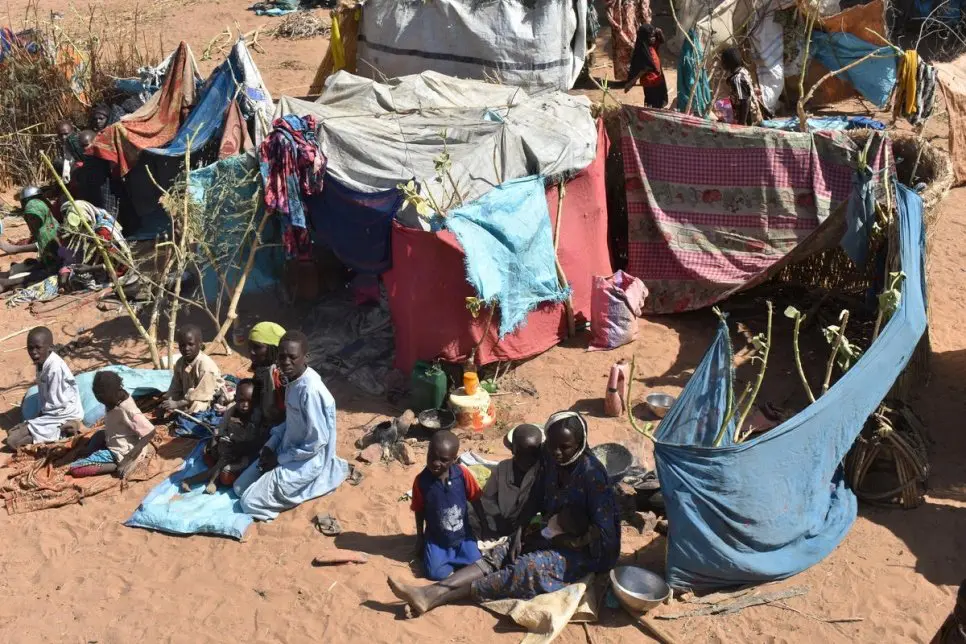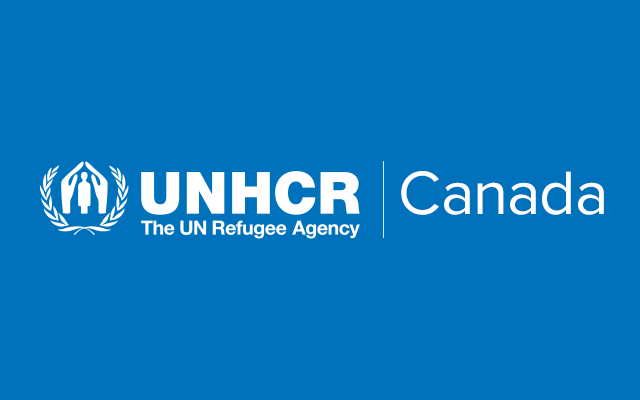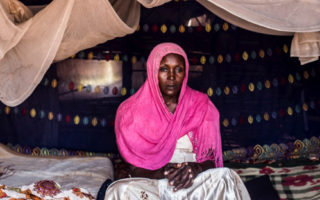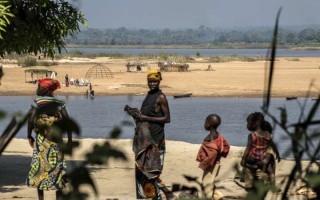
Sudanese refugees who fled inter-communal violence in West Darfur sit beside makeshift shelters in Mamata village, Chad, 19 January 2020. © UNHCR/Aristophane Ngargoune
This is a summary of what was said by UNHCR spokesperson Babar Baloch – to whom quoted text may be attributed – at today’s press briefing at the Palais des Nations in Geneva.
Recent violence in Western Darfur has forced Sudanese refugees to seek safety in neighbouring Chad. Since the end of July 2020, at least 2,500 people have crossed the international border while ethnic-related unrest has affected an estimated 20,000 people within Western Darfur in Sudan – the majority of whom are women and children.
Attacks, blamed on armed nomads, in West Darfur’s Masteri town killed 61 people from the Masalit community and injured at least 88 on 25 July. Houses were also reported to have been burned to the ground in the town and the surrounding villages.
Many of the newly arriving refugees had returned home to Darfur from eastern Chad earlier this year.
More than 80 per cent of those arriving in the Chadian border town of Adré are women, children and elderly people who ran for their lives as clashes erupted. Many have witnessed extreme violence. A 25-year-old woman told UNHCR staff that her husband was stabbed to death in front of her eyes and she had to run for her life with her three children, making the journey to Chad riding a donkey for one full day.
UNHCR, the UN Refugee Agency, in collaboration with the Government of Chad and its national partners, is relocating the refugees from the border areas to the Kouchaguine-Moura refugee camp further inland. The camp was already hosting more than 6,000 Sudanese who had arrived in February 2020.
However, relocation to the camp by convoy is proving slow, due to poor road conditions and heavy rains. The first two convoys with 443 refugees arrived last week.
In Kouchaguine-Moura refugee camp, refugees are provided with shelter, water, food and emergency relief items. They are joining those who have arrived earlier. The camp is also providing access to hygiene and health, including isolation units, as part of the response to Covid-19.
Inside Sudan’s West Darfur State, the situation has stabilized since the attacks but remains unpredictable. The internally displaced, many of whom are staying in El Geneina, are still hesitant to return home and are demanding better security. Federal authorities in Khartoum have reportedly deployed additional forces to control and calm the situation, while a delegation from Massalit and the Arab tribal leaders arrived in El Geneina from Khartoum on August 4 and is conducting peace talks between both sides.
A joint mission conducted by humanitarian agencies to assess the protection risks and assistance needs of displaced families highlighted the pressing need for emergency relief items and shelters. However, poor road conditions, the rainy season and the security situation are among the challenges we are facing as we are organizing our response and monitoring the protection situation.
Chad currently hosts 476,000 refugees and asylum seekers, including some 365 000 from Sudan. UNHCR is grateful to the Chadian government for allowing access to its territory to those fleeing persecution, despite the border being closed due to COVID-19.
For more information on this topic, please contact:
- In Dakar, Romain Desclous, desclous@unhcr.org +221 786 396 385
- In Nairobi, Dana Hughes, hughes@unhcr.org +254 733 440 536
- In Chad, Aristophane Ngargoune ngargoun@unhcr.org +23568593010
- In Khartoum, Roland Schönbauer, schoenb@unhcr.org +249 912 179 387
- In Geneva, Charlie Yaxley, yaxley@unhcr.org +41 795 808 702
- In New York, Kathryn Mahoney, mahoney@unhcr.org +1 347 443 7646
- In Geneva, Babar Baloch, baloch@unhcr.org +41 79 513 9549
Originally published on UNHCR on 11 August 2020





